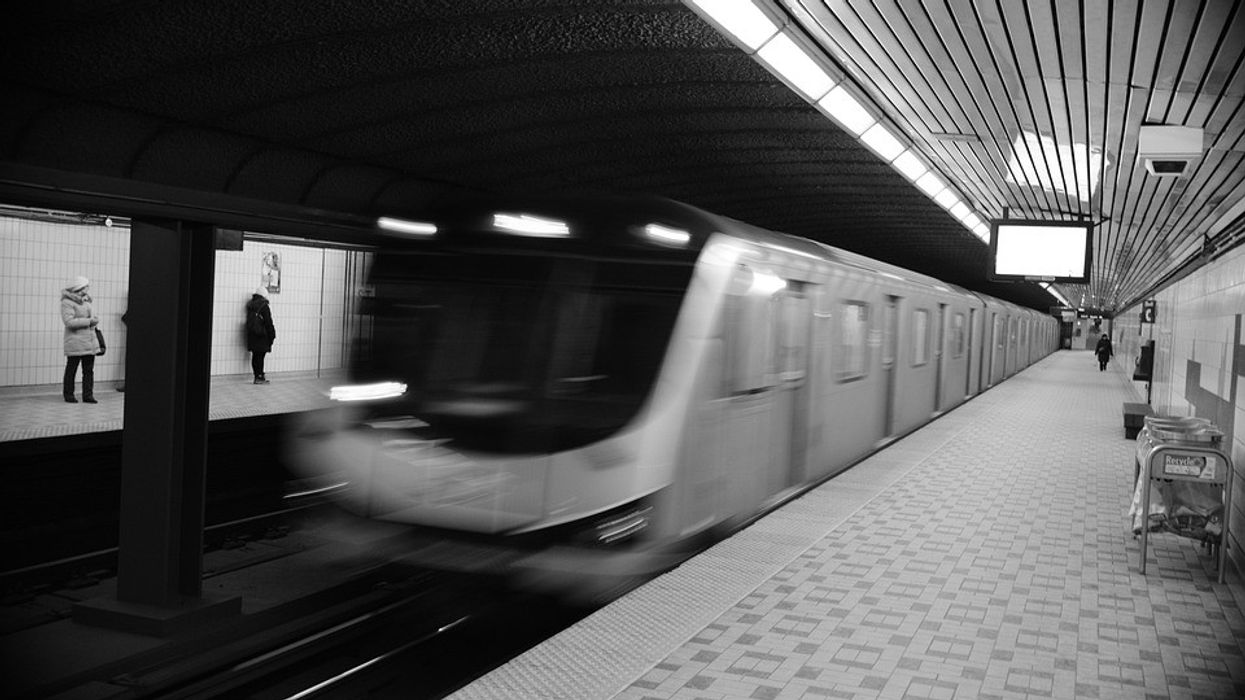In the last 18 months, three students have tragically died by suicide at The Bahen Centre for Information Technology on the University of Toronto's St. George campus. In response, the university has installed temporary barriers, as a quick fix to obstruct others from attempting to jump.
But many students say this isn't enough and that the post-secondary institution needs to implement better mental health infrastructure on campus. Especially so, students say, given the university's past refusal to publicly acknowledge suicides let alone adequately respond to them.
READ: Helping Homeless Veterans Leave The Streets Behind
"It's been U of T's recent trend to kind of not acknowledge and address the suicides that take place," said Shobhit Singh, an electrical and computer engineering student, to CBC following a previous death this past March.
Singh was one of more than twenty students who stood outside Simcoe Hall, where the president's office is located, to publicly grieve and call attention to the string of suicides on campus.
In March, students asked for a total of 21 changes to the university's system, including more health and wellness staff, increased hours around exam times, shorter wait times, wellness check-in emails from educators and online staff profiles showing what languages they speak.
READ: Toronto: A City So Poor Only The Rich Can Afford To Live Here
In the past, the Toronto Transit Commission (TTC) has come under fire over a similar trend of not being forthright about suicides nor responding to them appropriately. Whenever someone has leapt onto the tracks ahead of a moving train and died, the TTC has described suicides as a "personal injury at track level." It could be argued this is a euphemism, given the purposefully vague description of a tragic incident.
The TTC has considered installing barriers on platforms to deter people from jumping, in the same way the University of Toronto has responded to people dying at The Bahen Centre. Last year, a 70-year-old man was pushed to his death by another commuter, provoking the TTC to conduct a feasibility test for barrier installation.
"The platforms need to be reinforced. The platforms would need to be retrenched with cables and power supplies,” explained TTC spokesperson Brad Ross to Global News last year. Ross said the cost of retrofitting stations to accommodate barriers would cost $1 billion dollars.
READ: Women’s Shelters In Toronto That Offer A Safe Space For The Vulnerable
As the public face of the TTC, Ross has worked to change the way the TTC responds to suicides and murders on subway platforms. Following the implementation of mental health awareness campaigns by the TTC, suicides actually decreased in 2015. But the determination to install barriers has remained steadfast.
In 2014, Toronto Public Health endorsed the installation of barriers. “The global best practice in all kinds of countries around the world is to install platform edge doors — for suicide reasons, for efficiency reasons and for accident reasons and crowding reasons,” said Joe Mihevc, a former Toronto city councillor, in a statement that year.
READ: True Stories Of Homeless Teens Who Beat The Odds With The Help Of A Youth Shelter
In 2016, 27-year-old Michael Padbury died by suicide. Following his death, the TTC finally decided to be open and honest about suicide on public transit. For decades, worried that such frank dialogue could trigger copycats, the transit commission wasn't forthright. But suicides on Toronto's subway system have continued to climb with 45 deaths in 2017 and 46 in 2018, so the need to be transparent is more pressing than ever.
Suicides in 2017 amounted to 4,000 days off for TTC employees impacted by suicides. Staff had to take off an average 123 days following such a devastating incident. Research compiled by the TTC stipulates that a single suicide can cost society millions of dollars in lost time.
It's safe to say that the installation of barriers in The Bahen Centre and on TTC subway platforms is one small way to deter the suicides of vulnerable students and commuters. But society as a whole has to develop stronger ways to be open and transparent to speak responsibly about suicide statistics and to implement mental health infrastructure that enables people to get the help they need.
Suicide Prevention Services
Crisis Services Canada, 1-833-456-4566, crisisservicescanada.ca
Kids Help Phone, 1-800-668-6868, kidshelpphone.ca





















